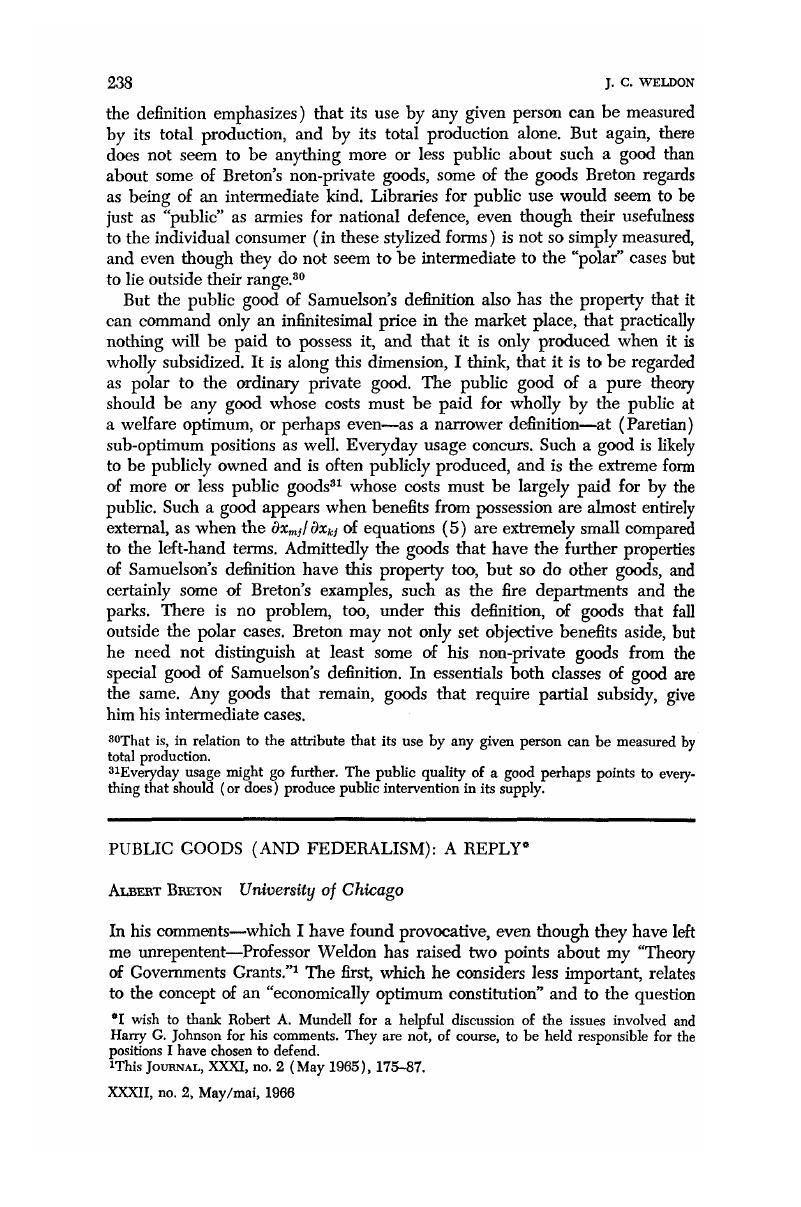Published online by Cambridge University Press: 07 November 2014

I wish to thank Robert A. Mundell for a helpful discussion of the issues involved and Harry G. Johnson for his comments. They are not, of course, to be held responsible for the positions I have chosen to defend.
1 This Journal, XXXI, no. 2 (May 1965), 175–87.
2 It should perhaps be stressed that this last issue is related to the conceptual framework I developed to discuss the question of government grants and not to that question itself. In other words, Weldon raises definitional problems and not problems of content; however, if one did accept his remarks, the substance of my argument about grants would probably be changed, but in some unspecified and unknown way. This, indeed, is one or the major difficulties with Weldon's effort to steer the subject back to the traditional approach.
3
If Weldon insists that they do not meet these conditions, then he is certainly wrong in writing ![]() in his utility functions, unless he defines these goods in some empirically meaningful way.
in his utility functions, unless he defines these goods in some empirically meaningful way.
4 In a number of places (on page 230 and in note 22) Weldon uses such phrases as “not operational” and Thow we measure these things.” I suggest that he apply these criteria to his alternatives to see how well they perfom. I have a strong suspicion that they do not pass these tests with flying colours!
5 I have defined these goods as goods “which, though not available equally to all, have the property that the amount available to one individual does not reduce that available to others by an equal amount.” “A Theory of Government Grants,” 177.
6 A distinction which clearly indicates that Weldon recognizes the presence of indivisibilities in the flow of some goods.